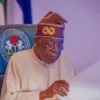Cameroonian President Paul Biya announced on Sunday that he will seek an eighth term in office in the upcoming October 12, 2025 presidential election, extending a rule that has already spanned nearly 43 years.
Biya, 92, made the announcement via a post on X (formerly Twitter), in both French and English.
“I am a candidate for the 12 October 2025 presidential election. Rest assured that my determination to serve you is commensurate with the serious challenges facing us,” he wrote.
“Together, there are no challenges we cannot meet. The best is still to come.”
While Biya was already widely expected to run as the de facto candidate of the ruling Cameroon People’s Democratic Movement (CPDM), of which he is president, his formal declaration comes amid mounting questions about his age, health, and capacity to govern.
Biya’s announcement follows a wave of defections from his political circle, highlighting growing discontent even among former allies. In June, Employment Minister Issa Tchiroma Bakary resigned from the government to contest the presidency under the banner of his Front for the National Salvation of Cameroon (FSNC).
Meanwhile, former Prime Minister Bello Bouba Maigari, who had been aligned with Biya for nearly three decades, also declared his candidacy, representing the National Union for Democracy and Progress (NUDP). Both parties had long been allied with Biya’s CPDM, which has dominated Cameroonian politics since independence in 1960.
Their departures underscore increasing fractures within the ruling establishment as public dissatisfaction grows over economic stagnation and governance failures.
Despite widespread public frustration over youth unemployment, soaring prices, and poor public services, the opposition remains fragmented.
Leading opposition figures who have declared their intention to run include Maurice Kamto, Biya’s fiercest critic and runner-up in the 2018 presidential election, and Cabral Libii, a rising political force from the Cameroonian Party for National Reconciliation (CPNR).
However, efforts to unify the opposition around a single candidate have so far faltered—raising concerns that a divided front could once again benefit the incumbent.
Candidates have until July 21 to formally declare their intention to contest the presidency.
Biya’s government continues to face periodic violence from separatist groups, particularly in the English-speaking regions of the predominantly Francophone country. The Anglophone crisis remains a flashpoint in Cameroon’s politics and a key issue in the upcoming election.
As the October vote approaches, Biya’s candidacy sets the stage for what may be one of the most consequential elections in Cameroon’s recent history—pitting a deeply entrenched incumbent against a divided opposition, in a nation grappling with internal discontent and complex security challenges.
AFP


